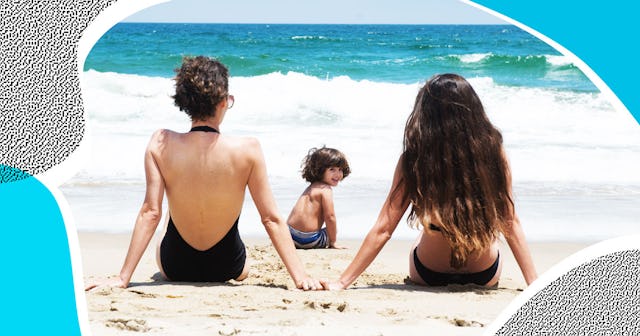Why You Might Want To Pack Up And Move Near Water

It’s the dead of winter here in the Midwest and not a single day goes by when I don’t tell my husband how desperate I am to run away to a beach. I’m dreaming of margaritas, fish tacos, a good book, and the sounds of the surf. Mostly, I just want my skin to feel the sun’s kiss.
I know I’m not alone. For many of us, winter is depressing. We’re surrounded by grey. The temps are cool, if not frigid, and most days it’s a toss up between rain, snow, and sleet. Our vitamin D levels have plummeted, and we’re still in our post-holiday slump with spring seemingly a million years away. Packing up and moving to the water sounds really damn good right now.
https://www.instagram.com/p/B6QbukfBie6/?utm_source=ig_web_copy_link
What is it about the blues and greens of a lake or ocean, the fiery sunsets, and the sand under bare feet that is so magical? There’s little science to back us up on this, as Mother Nature’s gift of water hasn’t been a hot area of study. However, there’s something there for sure. There are, after all, hundreds of songs about beaches, water, and sunsets. I can’t think of anything better right now than spending a good week in Margaritaville, sipping something tall and strong while my kiddos spend hours digging in the sand.
Have you ever planned a family vacay and noticed that the ocean-side or waterfront rentals are hundreds more than the ones that face other condo units or require a good mile hike to the shore? That million-dollar view can cost a pretty penny, because the reality is the surf’s sound, scent, and sight brings about feelings of relaxation and elation. Though “theorists have suggested that aquatic environments or ‘blue space’ might have particular restorative potential,” there’s not much research to back it up. However, one study did show that “both natural and built scenes containing water were associated with higher preferences, greater positive affect and higher perceived restorativeness than those without water.”
I don’t need science to tell me that being near water is going to give me all the positive vibes—that sense of restoration that only blue space can offer. Experience is all the proof I need. Last January, we were having one of the worst seasons of our life—with one hard knock after the next. We decided, quite last minute, that we would use our saved airline points and take our oldest two girls to the beach for three days, leaving the little ones with grandparents. Riding bikes, playing comedic rounds of tennis, eating seafood, and lounging beach-side for hours was exactly what we needed in order to come back home with a clear head and tackle our problems.
Three years ago, our dear friends sold their home here in the Midwest and high-tailed it to Lake Michigan where my friend grew up. We visited them a year after they moved. I’ll tell you that as soon as we piled back into the minivan after touring the lakefront area by their house, I was researching housing costs and school district ratings. The reality of driving back home to St. Louis where it was a sweltering 120 heat index for weeks on end, with only a few meh lakes nearby to enjoy, was more unappealing than ever before.
We’re currently surrounded by subdivisions, shops, and restaurants. We have several beautiful parks and excellent schools. We’re also within three hours of our parents, siblings, and nephews. There are plenty of hiking trails, and my parents’ home borders a national forest. All that green is gorgeous in its own right, but it’s certainly not the aquatic dream. I’ve asked my husband more times than I can count if he could just switch offices to one in a beachfront town. (Sadly, to no avail.)
When you’re on or near the water, there’s an automatic tendency to reflect and relax. I naturally let go of every worry. What happened that day in the news or what’s trending on social media no longer matters. My top priorities are to collect seashells, wade in turquoise water, and remember to reapply sunscreen. What time is it? Who cares! No shoes, no shirt, no problem.
The biggest payoff for being near the water is that my anxiety melts away—immediately. I’ve never had a panic attack on the beach, probably because all my cares evaporate into the salty air. It’s like I become an emotionally, mentally lighter version of myself. I also no longer care what I look like—as if all societal pressures to be muscular and thin disappear. Honestly, when all you can see for miles is water, how I look in a swimsuit is irrelevant.
Granted, unless you’re a bazillionaire, you can’t just spend all-day, every-day on an uncrowded, pristine beach. This is the sad reality. Many of us scrimp and save for years to take our families to a beach, knowing that when we get there, we will experience some level of restoration. As soon as we get home from a trip, I’m mentally planning our next one, desperate to get back to nature and away from whatever stress is plaguing us.
These long winter days are for the birds. Actually, the birds migrate South for the winter. Unlike all the Hallmark movies, most days are hardly a snowglobe scene, complete with passionate lovers’ story-line. Instead, my day-to-day reality involves finding my kids’ lost mittens, searching for an unbroken umbrella, and researching soup recipes. The main dish is oh-so-dreary, cold days with a side of rotating illnesses.
Our feelings of relaxation and elation are ignited by the water, which is why we simply can’t get it out of our heads that life would be so much better if we could reside ocean-side or lake-side forever. For now, I have to settle for the occasional hot bath, my vacay Pinterest board, and the latest romance novel.
This article was originally published on